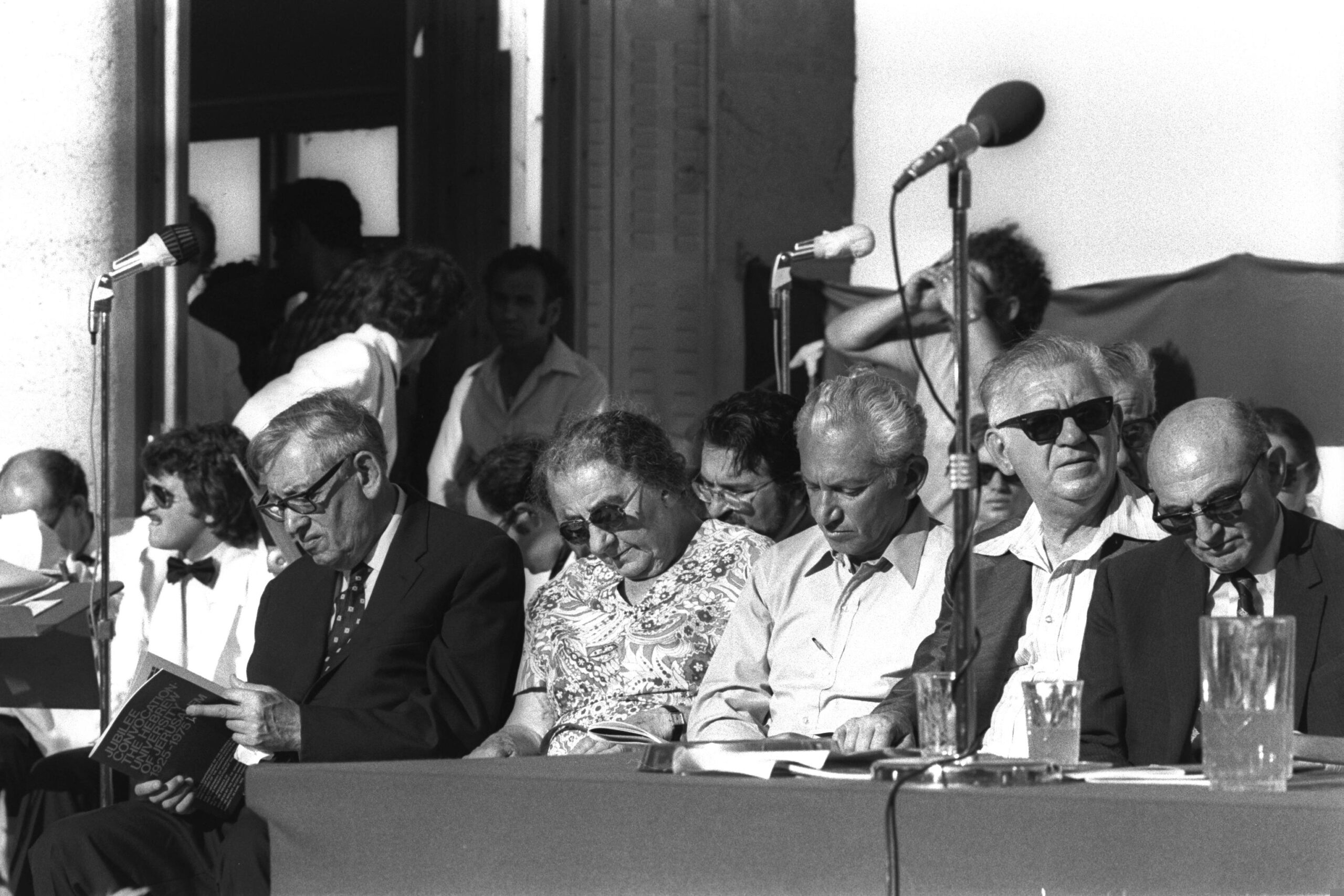
January 1, 1995
The full, 1,500-page Agranat Report, the Israeli government’s official assessment of the Israel Defense Forces’ performance during the October 1973 Middle East war, is released to the public, with the exception of 48 pages withheld because of classified information. The daily Ma’ariv newspaper had petitioned the Supreme Court in 1993, the 20th anniversary of the Yom Kippur War, to publish the document long before its planned 2004 release. Realizing that the claim of a need to delay for security reasons would not hold up in court, Prime Minister Yitzhak Rabin then announced the Jan. 1, 1995, release date.
The report came from a national commission of inquiry, which was created under the chairmanship of Supreme Court Chief Justice Shimon Agranat in November 1973 and was tasked with investigating the intelligence obtained by the civilian and military units, analyzing the information the military had on Syria and Egypt and the IDF’s intentions regarding those countries, and researching how well equipped the IDF was when the war broke out. The commission took testimony from more than 90 people and accepted written comments from 188 others.
The Agranat Commission published an interim report in April 1974 on why the IDF was not prepared to fight. The commission found that the IDF did not expect Egypt to attack from the air and did not believe that the Egyptian military could heavily damage the Israeli Air Force. In addition, the commission found that the IDF thought Syria wouldn’t attack unless Egypt did first. Those findings revealed Israeli intelligence’s failure to recognize the cooperation between Egypt and Syria and their motivation to organize a coordinated attack. Prime Minister Golda Meir resigned just over a week after the interim Agranat Report’s release.
A second report, published in July 1974, was 400 pages long, but only the introduction was released to the public. The report mainly consisted of testimony offered to the commission. It served as a supplement to the first report.
The commission delivered its final report Jan. 30, 1975, but again made only the introduction available to the public. The commissioned detailed the events of the Yom Kippur War in the Sinai and the Golan Heights and addressed the lack of emergency supplies and of military order and discipline. The commission called for strengthening the Mossad and the Foreign Affairs Ministry and for appointing more government officials with backgrounds in intelligence.
